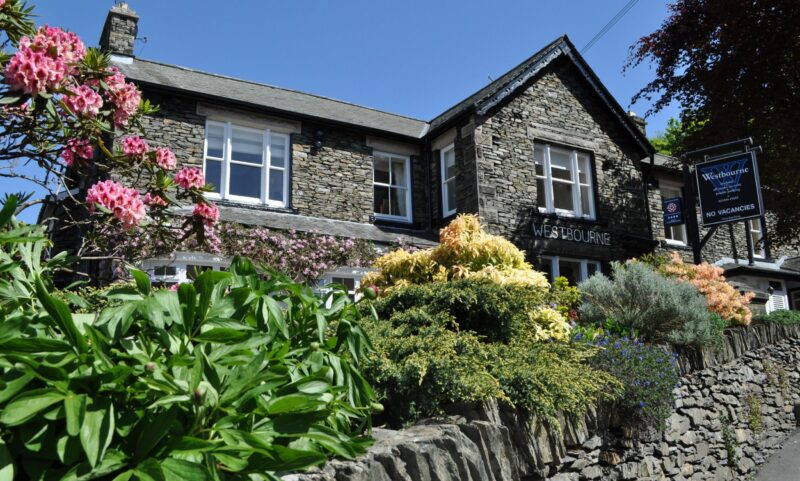
It’s been said that when you know someone who becomes unemployed, it’s a recession. When you become unemployed, it’s depression. Unfortunately, in today’s job market, many people are struggling to find employment. Students graduating from school also face an uphill battle as they attempt to launch their careers in an environment marked by uncertainty and intense competition.
Finding a job can be challenging. It takes drive, perseverance, creativity, and a bit of luck. What doesn’t require luck, however, is crafting a compelling cover letter and resume that captures the reader’s attention and leads to an interview. Since getting through the door for an interview is half the battle, let’s take a closer look at what goes into writing a great cover letter.
When I was President of HVS, I received five to ten resumes a week from applicants interested in joining my firm. Most resumes were accompanied by a cover letter that introduced the applicant and provided a brief overview of the position being sought, along with the applicant’s qualifications. Only about one out of every hundred cover letters I received was written in a manner that piqued my interest enough to respond. The other ninety-nine were uninteresting, generic, self-serving, and provided little meaningful information.
To illustrate the difference between ineffective and effective cover letters, I’ve included below two real examples: one of the worst and one of the best.
THE WORST
Dear Madam, Dear Sir,
My desire to succeed in my future professional career prompts me to submit my resume. I am looking for an opportunity where I can apply my academic skills to the day-to-day business issues in the hospitality environment.
I am interested in a consulting position that will provide me with more exposure to clients and real-world experiences, particularly in areas such as consulting, marketing, interior design, finance, or any hospitality-related project where I can be an active participant.
I believe the best experience I could gain would be working with true professionals from a major consulting group, such as HVS.
I strongly believe that working for HVS will provide me with an excellent step forward toward my future hospitality career.
Sincerely, John Doc
Notes on the Worst
- If you don’t have a specific name, don’t send the resume. If in doubt, address it directly to the company president.
- Focus on what you can do for the employer, not just what you hope to gain.
- This applicant is interested in too many areas and lacks focus, unique expertise, or relevant experience.
- The letter provides no background information on past work experience, making it impossible to judge qualifications.
- Most importantly, the letter does not convey a burning desire to work for HVS.
THE BEST
Dear Mr. Rushmore,
Over the past three years of college, I have developed a strong passion for hotel valuation and a clear goal of building a long-term career at HVS. Your Hotel Valuation book has been a constant reference and inspiration for me, and it is the primary reason I am applying for an analyst position in your New York office.
My professional background combines both analytical and operational expertise. I worked as a hotel analyst for one of Thailand’s largest hotel companies, where I gained hands-on experience evaluating assets and financial performance. Additionally, my time as Assistant Front Desk Manager at a five-star hotel in Dallas provided me with a deep appreciation of the operational side of hospitality. These experiences have given me a balanced perspective on the industry, with strong analytical skills, attention to detail, and the ability to work effectively both independently and as part of a team.
I recognize that opportunities may be limited in today’s economy, but I am eager to prove that my drive, adaptability, and dedication make me a strong fit for HVS. More importantly, this is not a stepping-stone for me; I am committed to growing within HVS and contributing to its success over the long term. If you give me a chance, I will not let you down, and you will not regret hiring me.
Enclosed is my resume for your review. I would be grateful for the opportunity to discuss how I can contribute to HVS and grow into a long-term member of your organization.
Best regards, John Doe
Notes on the Best
- The applicant obviously did research and successfully caught my attention in the first paragraph with some well-directed flattery.
- Provided concise employment history and tied it to the qualifications necessary for the position.
- Good outline of personal skills that would be useful for me: quick learner, analytical, of the highest integrity, and a team player.
- The writer concludes by demonstrating his willingness to be flexible with his hours and compensation, while also showcasing a strong desire to be part of HVS. The real grabber is the last sentence: “If you give me a chance, I will not let you down, and you will not regret hiring me.”
Final Thoughts
A powerful cover letter separates you from the pack. It doesn’t just summarize your resume; it tells a story, demonstrates passion, and convinces the employer that you can bring unique value to their organization. Employers are inundated with applications, and the cover letter is your opportunity to make a lasting impression. The best cover letters show focus, energy, authenticity, and a genuine connection to the company’s mission. If you can communicate that clearly, you greatly increase your chances of landing an interview. Remember: a cover letter is not just a formality, it’s your first sales pitch. Done well, it can be the deciding factor between your resume landing in the rejection pile or at the top of the hiring manager’s desk.

